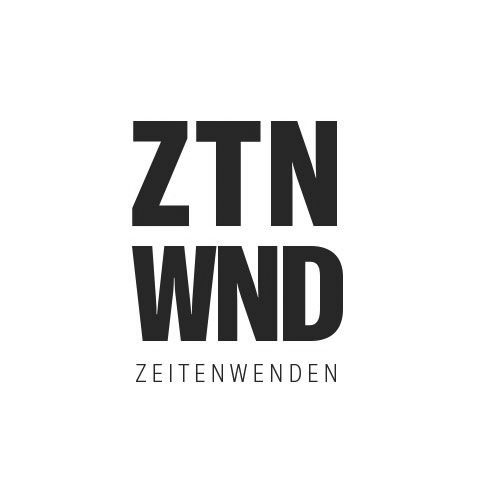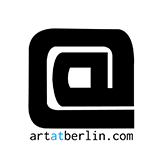PROLOGUE | PERSONAL
Victoria, we are doing this interview in writing, but imagine that we are sitting face to face. Where do we talk together – in your home or in your studio? Where do we meet you? I prefer to work in different places. Closed studio spaces tend to constrict my thought process and way of working, so I prefer a constantly changing place where I meet new people or people interested in my art. It would have to be an atmosphere in which many contrasting energies surround me, so I feel less observed and more secure. Somewhere among people, or outside by the water, or surrounded by ( architectural ) art would be very productive for conversation. Maybe we’ll sit in your favourite place? In St. Petersburg on the Neva River, at dusk. Where are you from, where were you born and when? I was born in 1986 in Pskov, Russia, and then my parents moved to Saint-Petersburg immediately after I was born, where I then grew up until I was twelve. Where do you live and work now? I live and work mainly in Berlin. There are always small and large stopovers and sojourns, but they make Berlin even more endearing for me.
Image above: Victoria Rosenman, 2021, Photo: Dusia Sobol
What stations and people have shaped you? I would replace “shaped” with “inspire”. Through all the traveling, my cosmopolitan nature has intensified a lot, so I can adapt and also feel comfortable in many situations. But what impresses me again and again are unprejudiced people who reveal a hospitality and cordiality that is inexplicable at first, who go through life with an unshakeable light-heartedness, just as my grandmother had been. I rarely meet such private people, but these people, of different ages, also belong to my circle of friends. I was shaped by school in Germany – cruel and traumatic. Studying art in Switzerland was also very ambivalent for my emotional state. Which writers do you find exciting at the moment and which books are on your bookshelf? I find Christian Kracht very exciting at the moment. I am a great fan of Russian classics, so of course all the works of Dostoevsky, Chekhov, Bulgakov can be found on my bookshelf. But I also love the thoughts of Oscar Wild, the descriptions of Max Frisch, the fantasies of Haruki Murakami – these are the books I see in front of me right now.

Which books have influenced or shaped you? “15 Years with Salvador Dali” by Amanda Lear. “The Diary of a Drug Addict” by Aleister Crowley, “Extravagant Thoughts” by Oscar Wild. What are you currently reading and where do you keep the book? It’s Edgar Allan Poe right now on my brass side table that I got hold of at Arkona Square ( the table!). I don’t think I’ll manage to keep reading the book – it bores me. The language is beautiful, though. What music do you listen to and when? Anywhere. Anything. Different times, different styles and languages. If you were to cook something for us, what would it be? Orecchiette with salsiccia in red wine sauce or “Dolma” (with minced meat filling though). You should not be a vegetarian. What do you like to eat best? Meat, fish, seafood. Truffles. How do you feel about breakfast? I love it – long and extensive. What sport or compensation do you do for your work? I meet people and look for contrasts in everyday life. Do you have any special passions that you burn for, and if so, which ones? Cats, travelling, antiques. What personality trait defines you? I like to take care of things. I adore everything aesthetic, am fascinated by absurdities and like to enjoy.

INTERVIEW | ARTIST + POSITION
To begin, please tell us in a few sentences about your artistic vita.
Immediately after graduating from the Academy of Art and Design in Basel, I moved to Berlin. In 2013, I showed for the first time my long-standing project “Vom Vernichten einer Muse”, by exhibiting real people opposite their photographic images ( my artistic visions ). In 2015 I won a grant in Munich and developed that further by completing it with manifestos and other media.
Every year I show through various exhibitions and collaborations ( auctions, curation etc.) in different places, new insights into my work.
Briefly explain your current project or upcoming exhibition.
The upcoming exhibition is a completely new concept that will be shown for the first time at HAZEGALLERY in Berlin. I am lucky that the owner of the gallery and curator Irina Rusinovich appreciates my vision and supports young emerging artists (often with an Eastern European background ) in their work.
This time it is no longer about the muse, as flesh and blood inspiration – or exploring interpersonal relationships. The title “Concept for Mitigations” already involves the current idea. If you look for a synonym for the word mitigation, terms like “alleviation”, “relief”, “defusing” or “encouragement” come up. This time I am developing ( utopian ) solutions, advice, examples and prompts in the form of illustrations, objects and texts that “downplay” our human existence in a good sense or make it more pleasant. This time I am the mad doctor who produces and presents a medicine that is magical if you “accept” it and believe in it.

What are you most concerned about at the moment?
My time.
How did you come to art? Why art?
As a child I had many extraordinary, beautiful daydreams and often ghastly nightmares – I needed to transform that into Something mostly tangible. I think art is sacred, immortal and omnipresent – I draw energy and greatest bliss from it.
What makes you happy?
My visions and the people around me.
What are you afraid of?
My own thoughts. Stiffness. Politics.
Do you think art has a social responsibility? And what do you think it can achieve?
Art can bring about all sorts of things if you expose yourself to it or find access to it, but it bears no responsibility at all, since it is an independent and indomitable “force of nature” into which we project our own desires. The origin is freed from statements.

What constitutes your art? What is your work about – what are the central themes?
I explore fear because I think this phenomenon can bring us very close to our own authenticity. The different truths are exciting for me. The process of my art is more valuable than the end result. My art is multimedia and immaterial and it needs people, as inspiration and instruments.
THE DEED | DAS WERK: Victoria Rosenman
The Berlin-based photographer and conceptual artist Victoria Rosenman, who grew up in St. Petersburg, Russia, talks about the central message of her artistic work during her interview.

Butchers Venus_ 2013, Foto: Victoria Rosenman
Victoria, please describe the core theme and central message of your work.
My art tells of an eternally human experience: the high-risk, horribly illusory beauty of relationships, power and dependence, destruction and creation, obsession and surrender. The leitmotif is the transformative gaze of mutual exploration between the artist and the people surrounding her.
Who are you? What do you see in me? What could I be for you? And: What would I be without you? How far will you go? What will you allow? How do you release the emotional tension? Do we reach the contemplative level of absolute art, or do we crash?
It is photo stagings, objects, texts ( manifestos ) and especially installations with real people that reveal the process of people’s necessary willingness to allow uncomfortable states.
The artistic process is more important than the final result. It is interpersonal phases of uncertainty that ideally result in a new strength.
Introduce us to the work that you feel exemplifies or best embodies the message of your work.
You see a large projection on the facade of a building. A photographic staging is projected that is titled “Butcher’s Venus.” This is my vision of a person who is very close to me and has opened up to me completely with all his fears and phobias. This person stands directly in front of the projection on a pedestal, as a real person and at the same time as an art installation.

Projection Butcher’s Venus, 2015, Photo: Victoria Rosenman
The viewer observes, so the motionless, living person and his image created by me. This image ( the projection / photography ) is to be understood as the final result and a tangible proof, of my artistic process ( which is the value of my creation ). It is the proof of our relationship that we both had to enter into, so that I can explore the ever changing interpersonal hierarchy, as art.
What is the goal of your art, your work – what should it achieve for the viewer?
The goal of my art is first and foremost – my own self-gratification, that is. Ideally, I would appreciate it if my art raises questions in the viewer and accompanies him longer in thought, so that it can “mark” and also exist in your omnipresence everywhere.
THE DEED | THE WORK is a complementary and separately presented part of THE INTERVIEW IN|DEEDS with Victoria Rosenman.
How do you protect yourself from too much inspiration these days?
I wish I had more of inspiration.
How much in your work is planned beforehand – how much arises intuitively?
I plan very meticulously, but in the end something unexpected happens.

What are your (next) goals?
More courage.
What is your position on the subject of faith? Do you have principles of faith or is there a motto?
—
Which project would you still like to realize if lack of time, lack of courage or financial resources would not play a role?
My own art collection.
In your opinion, what are attributes for good art?
A longer thought process is triggered in the viewer. The work is “accessible” even for “non-art connoisseurs” but at the same time it is not transparent.

Is one born as an artist? Or is a study of art obligatory?
Some already carry it in themselves from the beginning, others need tools to evoke the artistic. There are no obligations.
To whom do you show a new work first?
Differently.
What does the first hour of your day look like?
Coffee. Watching the sky. Music. Purification rituals.
In the age of the Internet of Things, are galleries still necessary? If yes, why and for what?
As long as it is not NFT art – it is indispensable to experience the work real, also to touch and taste if necessary. Real encounters are essential.
Social media – blessing or curse?
It is a good tool if you know how to use it in a worthy way.
EPILOGUE | CURRENT
The exhibibition Concepts for Mitigations by Victoria Rosenman can be seen from 11th March to 26th March 2022 at HazeGallery, Bülowstraße 11, 10789 Berlin-Schöneberg. Opening: 10th March 2022, 7:00 pm.
www.instagram.com/victoria_rosenman_artist
www.facebook.com/victoria.rosenman
In times of Corona, when travel, studio visits and personal contacts are inappropriate or even impossible, the written interview remains an important medium to introduce artist personalities, to spread their messages and to stay in touch with art lovers. The interviews are not edited or shortened by the editors and are always reproduced in original sound. Therefore, we do not translate the interview into English or German unless this is submitted by the interviewee.






